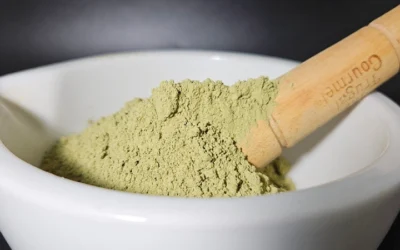CJ’S Law and the Proposed Bill to Ban Kratom in New Jersey
The landscape of herbal dietary supplements and their regulation is ever-evolving, with kratom regulations often at the center of legislative scrutiny. In New Jersey, a proposed bill aims to ban kratom, sparking significant debate among lawmakers, health advocates, and the public. This blog post delves into the intricacies of CJ’S law and the specifics of the bill proposing to ban kratom in New Jersey.
Understanding Kratom
Kratom, scientifically known as Mitragyna speciosa, is a tropical tree native to Southeast Asia. Its leaves have been used traditionally for centuries due to their stimulant properties. Kratom is related to the coffee plant, but it does not contain caffiene. Kratom contains alkaloids such as mitragynine that give kratom its energizing effects.
In recent years, kratom has gained popularity in the United States as an alternative remedy. However, its rise in use has been accompanied by concerns regarding its safety, potential for dependence, and lack of regulation.
CJS Law: An Overview
CJ’S law is a framework that governs the regulation, classification, and control of substances deemed potentially harmful or prone to abuse. Under CJS law, substances are classified into schedules based on their medical use, potential for abuse, and safety profile. Schedule I substances, for example, are considered the most dangerous, with a high potential for abuse and no accepted medical use.
Kratom has not been federally classified under any schedule, but its regulation falls under the purview of state laws and, in some cases, local ordinances. New Jersey’s proposed bill to ban kratom is a significant development in this context, as it reflects growing concerns and the state’s approach to addressing them.
The Proposed Bill to Ban Kratom in New Jersey
The proposed bill in New Jersey seeks to classify kratom as a Schedule I substance, effectively banning its sale, possession, and use within the state. This move has been driven by several factors:
- Health and Safety Concerns: Advocates for the ban cite numerous reports of adverse health effects associated with kratom use, including addiction, liver damage, and overdose deaths. They argue that the unregulated nature of the kratom market exacerbates these risks, as products may be contaminated or mislabeled. Kratom Myths and Misinformation has been fueling this debate for some time now.
- Lack of FDA Approval: The U.S. Food and Drug Administration (FDA) has not approved kratom for any medical use, and it has raised significant concerns about its safety and potential for abuse. Proponents of the ban argue that without FDA approval, kratom poses an unacceptable risk to public health.
- Opioid Crisis Context: New Jersey, like many states, is grappling with the opioid crisis. Some lawmakers and health officials view kratom as a potential gateway to opioid abuse or a complicating factor in addressing opioid addiction.
Arguments Against the Ban
Opponents of the proposed kratom ban in New Jersey present several counterarguments:
- Potential Benefits: Many kratom consumers and advocates highlight its potential benefits. They argue that banning kratom would deprive individuals of a valuable alternative. Regulating kratom with the help of the Kratom Consumer Protection Act will ensure that Pure Kratom products are being sold within the state of New Jersey.
- Lack of Comprehensive Research: Critics of the ban emphasize the need for more comprehensive research on kratom’s effects and potential benefits. They argue that a ban would stifle scientific inquiry and prevent a nuanced understanding of the substance.
- Regulation Over Prohibition: Instead of an outright ban, some advocates propose a regulatory framework to ensure product safety and quality. The New Jersey Kratom Consumer Protection Act would involve setting standards for kratom production, testing for contaminants, and providing accurate labeling. Such regulation, they argue, would mitigate risks while allowing consumers access to kratom.
The Debate in New Jersey
The debate over the proposed kratom ban in New Jersey has garnered significant attention and sparked passionate responses from various stakeholders. Public hearings and legislative sessions have seen testimony from health professionals, kratom advocates, and concerned citizens.
Health Professionals: Some health professionals support the ban, citing case studies and research highlighting kratom’s risks. They point to instances of kratom-related emergency room visits and deaths, arguing that the substance poses a clear and present danger to public health. On the other hand, many doctors and medical professionals applaud kratom for its benefits and insist any deaths releated to kratom are poly drug use and not because of kratom alone.
Kratom Advocates: On the other side, kratom advocates, including organizations like the American Kratom Association (AKA), argue that responsible kratom use can offer significant benefits. They highlight personal stories of individuals who have successfully used kratom. These advocates call for regulation rather than prohibition, emphasizing consumer safety and informed use.
Lawmakers: New Jersey lawmakers are divided on the issue. Some view the ban as a necessary step to protect public health and prevent potential abuse. Others are concerned about the implications of criminalizing kratom use and the impact on individuals who rely on it for legitimate health reasons.

Explore the legal status of Kratom in New Jersey and purchase quality Kratom from Christopher’s Organic Botanicals.
Potential Outcomes and Implications
The outcome of the proposed kratom ban in New Jersey remains uncertain. If enacted, the ban would set a precedent that could influence other states considering similar measures. It would also raise important questions about the balance between public health, individual freedom, and the role of regulation in managing emerging substances.
Impact on Consumers: A ban would significantly impact kratom users in New Jersey, many of whom would be forced to seek alternative treatments or risk criminal penalties for continued use. This could lead to increased demand for illicit or unregulated kratom products, potentially exacerbating the very risks the ban aims to mitigate.
Legal Challenges: The proposed ban could face legal challenges from kratom advocates and industry groups. They may argue that the ban is overly restrictive and fails to consider the potential benefits of kratom. Legal battles could delay the implementation of the ban and lead to further public debate.
Public Health Considerations: If the ban is enacted, it will be crucial to monitor its impact on public health. This includes tracking changes in emergency room visits, opioid addiction rates, and other health outcomes. Data from New Jersey could inform future policy decisions and contribute to the broader understanding of the effects of kratom.
Conclusion
The proposed bill to ban kratom in New Jersey highlights the complexities of regulating emerging substances under CJS law. While concerns about kratom’s safety and potential for abuse are valid, the debate also underscores the need for a balanced approach that considers both risks and benefits.
As the discussion continues, it is essential to prioritize scientific research, consumer safety, and informed policy decisions that reflect the diverse perspectives of stakeholders. The future of kratom in New Jersey—and potentially across the United States—will depend on how these factors are navigated in the legislative and public arenas.
Updates January 8, 2025
Gainesville, VA — The American Kratom Association (AKA) commends the unanimous decision of the New Jersey State Board of Medical Examiners (NJ BME) to endorse S1476, the New Jersey Kratom Protection Act. The NJ BME did so at their January 8th meeting in which they also were presented with a bill opposite S1476: “S3359 – ‘CJ’s Law’; Criminalizes manufacture, sale, and possession of substances containing Kratom.”
“This is an important step to ensure kratom consumers have access to safely formulated and labeled kratom products to reduce the risk of adulterated or contaminated kratom products,” commented Mac Haddow, Senior Fellow on Public Policy. “Equally important, this decision sends a clear message that criminalization is not the solution and stands in stark contrast to the persistent misinformation by anti-kratom trial attorneys and anti-kratom advocates. New Jersey residents and all Americans should be grateful the NJ BME demonstrated that evidence-based science should dictate public policy.”
The AKA will be working closely with New Jersey Legislative leaders to seek passage of S1476 and the House companion legislation so that NJ can join the 13 states which have already enacted this critically important consumer protection legislation.
About American Kratom Association (AKA)
The American Kratom Association (AKA), a consumer-based non-profit organization, advocates to protect the freedom of consumers to safely consume natural kratom as a part of their personal health and well-being regimen. AKA represents the nearly 20 million Americans who consume kratom safely each year. For more information, visit www.americankratom.org.






0 Comments